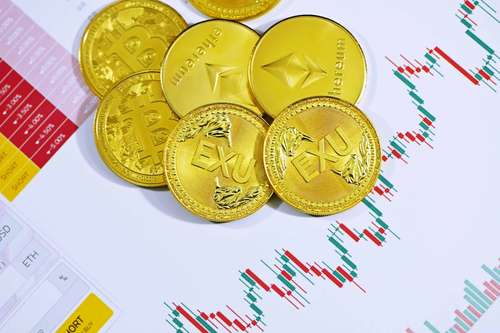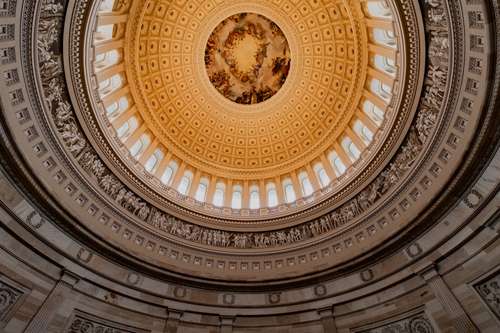Cryptocurrency valuations have now soared beyond $90,000 per Bitcoin. One of the many results of this interesting surge is that the automotive industry will see an unprecedented convergence of digital assets and luxury vehicles. On one hand, the transformation is changing how we buy cars.
On the other hand, it's also reshaping the financial space for major automotive brands. This is particular with Tesla as well as other luxury manufacturers.
With recent political developments, including Trump's re-emergence as President-elect, both Tesla and crypto have seen increased investor interest. Could this potentially signal a new era in automotive finance? Let's talk about it.
Digital Currency Revolution in Luxury Automotive Sales
The relationship between Tesla and crypto has grown into something far more significant than just an alternative payment method. In October 2024, market observers noticed a quite intriguing phenomenon: Tesla, along with tech giants AMD and Nvidia, displayed higher volatility than Bitcoin itself. This unexpected market behavior is only proof that there is a deepening integration between traditional automotive stocks and digital assets.

Whether you like it or not, luxury automakers are increasingly embracing crypto payment adoption, with brands like Lamborghini leading the charge. While Tesla temporarily paused Bitcoin payments due to environmental concerns, it maintains its crypto presence through Dogecoin acceptance for merchandise.
Comparatively, Lamborghini's crypto payments strategy has been more consistent. The company is partnering with crypto-friendly dealerships to accept Bitcoin and Ethereum for their high-performance vehicles.
The trend toward cryptocurrency acceptance in luxury car sales isn't limited to major manufacturers, though. Across major cities like Miami and Los Angeles, high-end dealerships are now facilitating purchases of Rolls-Royce, Aston Martin, and Bugatti models using digital currencies.
This shift represents a significant evolution in how luxury vehicles are purchased and has created new opportunities for both dealers and crypto investors looking to diversify their portfolios.
Blockchain in Automotive
Beyond digital payments, the implementation of blockchain in automotive industries extends far beyond simple transactions. Major manufacturers are making use of this technology to improve their operations and enhance customer trust.
One example is Toyota which has implemented blockchain solutions to improve supply chain transparency. Meanwhile, there's Alfa Romeo which has even introduced innovative NFT-based vehicle history tracking.

There's one particular area where this technological integration is especially evident. We're talking about how luxury brands are reimagining their customer experience. Lamborghini crypto payments is just one aspect of a broader digital transformation. The Italian manufacturer has partnered with Animoca Brands to create the Motorverse, a digital community that bridges the gap between physical supercars and digital experiences.
The automotive sector's embrace of blockchain technology is creating new opportunities for:
- Supply chain optimization and transparency
- Smart contract implementation for leasing and financing
- Decentralized insurance models
- Enhanced vehicle history verification
- Automated maintenance tracking
Innovation in Auto Insurance and Financing

The integration of cryptocurrency and blockchain technology is equally reshaping automotive insurance and financing. Smart contracts are now enabling automated, transparent insurance policies that can process claims more efficiently than traditional systems. With these blockchain-based insurance models, customers enjoy improved security and faster processing times. Crypto-based premiums also provide additional flexibility for both insurers and customers.
Decentralized finance (DeFi) solutions are also emerging as a potential game-changer in vehicle financing. These systems are looking like they will eliminate traditional intermediaries, reducing costs and streamlining the car-buying process. The implementation of blockchain-based financing could be a benefit for luxury car purchases, where transaction sizes are larger and traditional financing processes can be more complex.
Market Impact and Future Prospects
The crossing of cryptocurrency and automotive industries looks like it won't just be a temporary trend. For instance, luxury dealerships across North America and Europe are increasingly pushing for crypto transactions. There are platforms like AutoCoinCars connecting crypto-wealthy buyers with high-end vehicles. It seems adapting to a new generation of tech-savvy luxury consumers is another important aspect of the revolution.
The expanding scope of crypto payment adoption in the automotive sector suggests a future where digital assets play a crucial role in stabilizing market volatility. For Tesla and other luxury brands, embracing cryptocurrency represents both an opportunity and a challenge. While crypto integration signals innovation and attracts tech-forward investors, it also introduces new variables into already complex market dynamics.
Challenges and Considerations
We've seen the prospects, but the integration of cryptocurrency in the automotive industry has some challenges. The volatile nature of crypto assets can create uncertainty in pricing and valuation. This is particular for high-value transactions like luxury vehicle purchases.
Likewise, environmental concerns, which led to Tesla's temporary suspension of Bitcoin payments, are a significant consideration for manufacturers trying to find a balance between innovation and sustainability commitments.
Political and regulatory factors also play a role in shaping the future of crypto adoption in the automotive sector. As regulatory frameworks and political landscapes change, manufacturers and dealerships have to deal with changing compliance requirements while maintaining their commitment to digital innovation.
Looking Ahead

The future of automotive retail and manufacturing appears increasingly warped with cryptocurrency and blockchain technology. Short-term rental and car-sharing services could soon integrate crypto payments, while blockchain-based vehicle histories could become industry standard. There is also the potential for decentralized autonomous organizations (DAOs) to manage vehicle fleets and service networks—another aspect in automotive innovation.
For investors and consumers alike, a more digitally-oriented future is near. As Tesla and luxury brands continue to explore these technologies, automotive commerce and technology integration will eventually become the norm. We can expect to see even more innovative applications of blockchain and cryptocurrency in the automotive sector. This would potentially revolutionize everything, from vehicle ownership to maintenance and resale.




